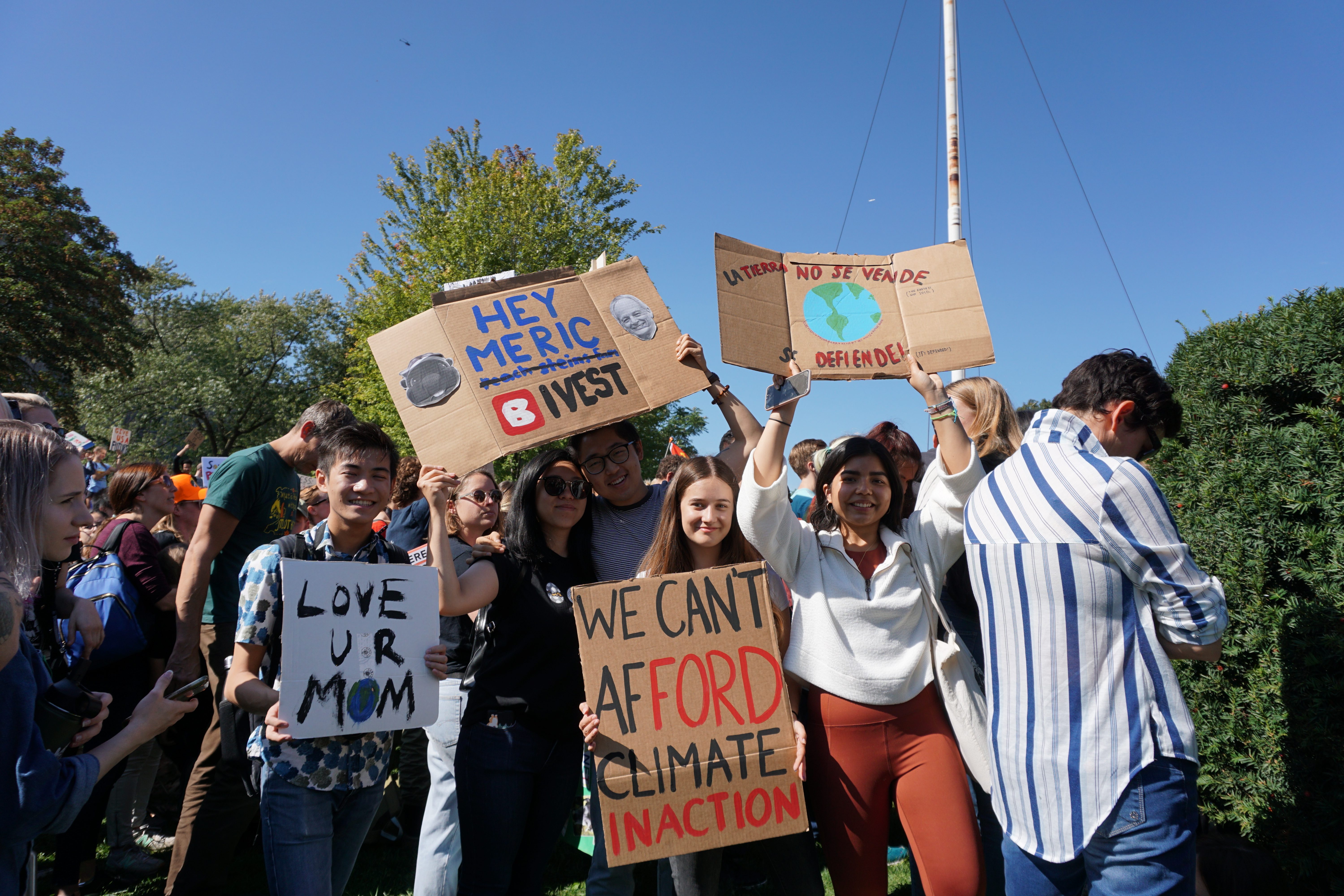Our house is on fire. Why don’t you care?
Climate change spells out the death of entire ecosystems, the loss of countless species, and the extreme transformations of our coastlines and oceans. And while the current predicament is largely the result of industrialization and development of Western civilization and the global south, the people being hit the hardest are largely in the less developed nations: examples include the deadly heat waves in India and the typhoons hitting Pacific Asia that are getting stronger each year because of warming seas.
Given the overwhelming scientific evidence and cases of extreme weather that have been linked to climate change, why isn’t everybody freaking out? Why isn’t climate catastrophe the number one priority? Why did the United States draw out of the 2016 Paris Accords? Why did Canada never ratify its predecessor, the 1997 Kyoto Protocol? And more recently, why did Justin Trudeau invest in oil pipeline projects?
You might have heard of the term “climate denial”, but what makes certain people blind (or perhaps unsympathetic) towards these issues?
Two psychology professors at the University of Toronto offer some possible explanations for differing environmental attitudes.
Professor Matthew Feinberg, who teaches at the Rotman School of Management, published a study in 2013 exploring whether environmental attitudes were based on personal moral convictions. The article is titled “The Moral Roots of Environmental Attitudes” and was published in the journal Psychological Science. He and his colleague found that some people’s attitudes towards the environment are rooted in their moral values and that morally-rooted attitudes are associated with more conviction and obligation towards such issues.
But what makes you more likely to see environmental issues as moral issues?
Feinberg draws on the five fundamental foundations of morality as described by Jonathan Haidt (also known for his book, the Coddling of the American mind). The 5 domains are: harm/care, fairness/reciprocity, in-group/loyalty, authority/respect, and purity/sanctity. If this theory has piqued your interest, I urge you to look into this work, but for the purposes of environmental attitudes and this article, we are only going to look at harm/care.
This harm/care aspect of morality encompasses caring about other people, understanding their pain, and embodying virtues of kindness and gentleness. The researchers found that environmental discourse usually evokes these concerns, so if your personal conception of morality is based a lot around the harm/care foundation, you might be more likely to see environmental issues as moral issues, and thus feel more strongly or feel more responsibility to act on these issues.
Another study on environmental attitudes was done on campus with U of T undergraduate students by Professor Dan Dolderman, who is well known for teaching PSY100. (If you have taken his class you might be having flashbacks right now to his imaginary surfer friend who was somehow a part of every test question.) In 2007 Dolderman, along with his colleague, published an article titled “Personality predictors of Consumerism and Environmentalism: A preliminary study” in the journal Personality and Individual Differences.
This research focuses not on moral foundations but on personality traits. The researchers found that the personality trait of Agreeableness (the degree of empathy and compassion) was associated with whether undergraduate students were more materially or environmentally concerned. Agreeableness was found to be positively associated with environmentalism and negatively correlated with consumerism
So what does this research mean? Actually, the implications are quite astonishing. As Feinberg points out, political liberals are more likely to base their morality on harm/care whereas political conservatives value other foundations, such as authority/respect and purity/sanctity. Sure enough, we see that environmental issues do witness such political polarization. Dolderman posits that the agreeableness personality trait is associated with environmental goals through a mechanism of empathy and self-transcendence.
This is not to say, however, that climate deniers are just all conservative and selfish, or that there is no hope for convincing them of climate change.
In fact, the research implies that climate denial may be ameliorated by changing the way we talk about the environment. Feinberg conducted a study in which participants were exposed to environmental discourse that was either framed through traditional harm/care values, or the known conservative ideal of purity/sanctity, or a neutral control condition. They found conservative participants in the purity/sanctity condition expressed more concern and belief in climate change, and supported pro-environmental legislation more than conservatives in any other condition.
This study suggests that by changing the way we talk about climate change, we can appeal to different people’s morality and thus increase their concern for the environment. I am personally not an expert psychology (yet) but it might be a good first step.
